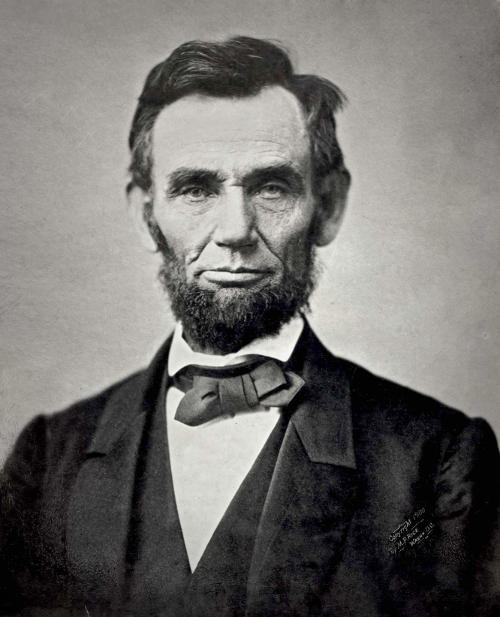A Pepper Grinder Post
What? No Way! - Part 2
It's usually much easier to knock something down than to build it up. In my last post I laid out the reasons why I strongly disagree with Kris Vallotton's interpretation of 1 Corinthians 14:34-35. I don't want to be guilty of just tearing Kris's argument apart without presenting my own interpretation. Let's start with my translation, not just of the two "silence" verses, but the larger section of which they're part.
For you can all prophesy, one at a time, so that everybody can learn and be encouraged. The spirits of prophets are under the control of the prophets. For God doesn't bring confusion, but peace.
As in all the churches of the saints, the women should be silent in church, for they aren't permitted to speak, but they should be in submission, as the Law says. If they want to ask something, they should ask their husbands at home, because it's disgraceful for a woman to speak in church.
Has the word of God only come from you? Are you the only ones to receive it? If anyone thinks he's a prophet or spiritual, he should recognize that what I'm writing is the Lord's command. If anyone ignores this, he will be ignored.
So, brothers, eagerly desire to prophesy, and don't stop anyone from speaking in tongues, but let everything be done properly and in good order. (1 Corinthians 14:31-40)
 I think the most important key to understanding these verses is to see what Paul's primary concern is in chapter 14. Let's follow the argument of the chapter. Paul spends the first 25 verses talking about messages in tongues versus prophecies. His point is that if people give messages in tongues but no interpretation is given, it won't help people in the church. Even though he thinks there is definitely a place for praying in tongues without an interpretation, he doesn't think that place is in church. One thing that seems pretty clear from this is that there must have been times in the church at Corinth when people were giving messages in tongues without any interpretation being provided. As you can imagine, this was causing confusion, especially to anyone present who wasn't a believer. Paul wants this confusion to stop.
I think the most important key to understanding these verses is to see what Paul's primary concern is in chapter 14. Let's follow the argument of the chapter. Paul spends the first 25 verses talking about messages in tongues versus prophecies. His point is that if people give messages in tongues but no interpretation is given, it won't help people in the church. Even though he thinks there is definitely a place for praying in tongues without an interpretation, he doesn't think that place is in church. One thing that seems pretty clear from this is that there must have been times in the church at Corinth when people were giving messages in tongues without any interpretation being provided. As you can imagine, this was causing confusion, especially to anyone present who wasn't a believer. Paul wants this confusion to stop.
Paul continues this line of reasoning by laying down some ground rules for Spirit-inspired messages in church.
- No more than two or three messages in tongues should be given, and none at all should be given unless there is someone present with the gift of interpreting tongues.
- Prophecies should be limited to two or three as well, with people considering carefully what is said.
- If one prophet is speaking, and someone else receives a prophetic message, the first speaker should stop talking and sit down.
What picture does this give you of the Corinthian chuch? I picture a place where there were many messages in tongues, with the congregation having no clue what was being said. I picture lots of prophecies, with times when more than one person was speaking at once. In general, it sounds to me as though the Corinthians were very excited about the supernatural gifts of the Holy Spirit. Paul is not at all trying to discourage them, but he wants the people to use their gifts in a way that will do the most to build other people up. He wants order.
This becomes even clearer when we get into our passage. He points out that prophets can control their gift, and then flatly says that God doesn't bring confusion (literally, in the Greek, what is against order) but peace. Now we get to the verses about women being silent in church. Paul then ends the chapter by summing up the whole chapter in this way:
So, brothers, eagerly desire to prophesy, and don't stop anyone from speaking in tongues, but let everything be done properly and in good order. (1 Corinthians 14:39-40, my translation, emphasis added)
So what is Paul's big concern? ORDER. The idea that makes the most sense to me is that his command about women being silent is also tied in to this larger theme.
 This is further reinforced by the Greek word that Paul uses when he says the women should keep silent in the church. This word is only used ten times in the entire New Testament, and yet three of those occurrences fall within a seven verse span of this chapter. First he says that if there is no interpreter present, someone with the gift of tongues should keep silent in the church. Then he says that if one prophet is speaking and someone else gets a revelation, the first speaker should stop speaking. Finally he says that women should remain silent in the church. The repeated use of the same not-too-common word in a short space makes it clear that these verses are tied together thematically. Not only does this go against Vallotton's idea that the verses about women are something totally different than the verses that come before them (namely, that the woman part is a quote from the Corinthians which Paul is refuting), but it also gives us a strong sense that the verses about women are part of the central theme of the passage.
This is further reinforced by the Greek word that Paul uses when he says the women should keep silent in the church. This word is only used ten times in the entire New Testament, and yet three of those occurrences fall within a seven verse span of this chapter. First he says that if there is no interpreter present, someone with the gift of tongues should keep silent in the church. Then he says that if one prophet is speaking and someone else gets a revelation, the first speaker should stop speaking. Finally he says that women should remain silent in the church. The repeated use of the same not-too-common word in a short space makes it clear that these verses are tied together thematically. Not only does this go against Vallotton's idea that the verses about women are something totally different than the verses that come before them (namely, that the woman part is a quote from the Corinthians which Paul is refuting), but it also gives us a strong sense that the verses about women are part of the central theme of the passage.
And what, exactly, is Paul telling women to do? Is he saying that they should remain totally silent in church gatherings? If the congregation sings or prays together, do women have to keep their mouths shut? Looking at the other uses of this word in the New Testament, it becomes clear that the word doesn't carry the connotation of complete silence. The sense it carries is of stopping a particular type of speech, often to allow someone else to be heard. For example, in Acts 12:17, when Peter had just been freed from prison by an angel, he went to the house of Mary, the mother of John Mark, where a bunch of disciples were gathered. Verse 17 says that Peter motioned with his hand for them to be quiet. The point was not to be able to hear a pin drop, but just for people to quiet down so they could hear Peter. Or, earlier in 1 Corinthians 14, when Paul says that those with a message in tongues should remain silent if there is no interpreter present, Paul isn't saying that these people have to sit in church with their lips tightly pressed together--he is saying that they should refrain from one type of speech--giving messages in tongues. But what type of speech is it that women are suppposed to refrain from? In the context of the passage, I think it has to be speech that is contributing to the chaos of the church. This means that even if you believe 1 Corinthians 14:34-35 applies to women today in the same way it applied to the women in Corinth in Paul's time, I don't think it means that women need to be utterly silent in church.
I also need to say, when I am talking about women speaking in church, I'm not talking about women preaching or being in positions of authority over men. That is another subject Paul deals with elsewhere, which I'll write about another time.
Now I want to ask you a question. Do you believe that Paul's teaching in this chapter means that in every charismatic church in every time and every place, there can never be more than three prophecies given? I do not believe that was Paul's intention. I believe he was trying to deal with the chaos that happened when you got some very enthusiastic believers experiencing some new and exciting things. Suddenly, some of them were getting prophetic messages. Others were being given messages in languages they had never learned. And women, who were generally silent in public gatherings in most cultures of that era, were allowed to join in the prayers, prophecies, and messages in tongues. It was phenomenal, it was exciting, and the Corinthians threw themselves into it. A little too much. I believe what Paul was trying to do here was dial the Corinthians back a notch or two.
I can picture someone seething about this. If Paul wants people to be more restrained, why not tell everyone to talk less? Why tell the poor women to keep their mouths shut?
The truth is, we don't know the specifics of what was going on. I don't really think the only problem was women shouting questions to their husbands, though I'm not as convinced as Kris that none of that was going on. After all, Paul does explicitly talk about women asking their husbands questions at home. As I mentioned last time, it is almost certain that some of the Corinthians would have been Jewish, in which case, the men would have been trained in the Law in a way the women weren't.
I also think that in a culture where women were usually silent in public gatherings, and where it sounds as though this was the standard practice in other churches at the time, having the women be silent in church would be one logical way to scale things back. It should also be remembered that this was just one of Paul's prescriptions for increasing orderliness.
Part of the problem when we look back at this passage from our modern perspective, is that it is so easy to assume that Paul is talking about women's rights in this passage. First of all, I think the whole idea of rights you are born with is foreign to Biblical thinking. Second, I just don't think it's what's on Paul's mind.
This question makes me think of a letter Abraham Lincoln wrote to Horace Greeley during the Civil War. Greeley had implied that Lincoln and his administration lacked the resolve truly to pursue the abolition of slavery. Here is part of Lincoln's reply:
 I would save the Union. I would save it the shortest way under the Constitution. The sooner the national authority can be restored; the nearer the Union will be "the Union as it was." If there be those who would not save the Union, unless they could at the same time save slavery, I do not agree with them. If there be those who would not save the Union unless they could at the same time destroy slavery, I do not agree with them. My paramount object in this struggle is to save the Union, and is not either to save or to destroy slavery. If I could save the Union without freeing any slave I would do it, and if I could save it by freeing all the slaves I would do it; and if I could save it by freeing some and leaving others alone I would also do that. What I do about slavery, and the colored race, I do because I believe it helps to save the Union; and what I forbear, I forbear because I do not believe it would help to save the Union. I shall do less whenever I shall believe what I am doing hurts the cause, and I shall do more whenever I shall believe doing more will help the cause. I shall try to correct errors when shown to be errors; and I shall adopt new views so fast as they shall appear to be true views.
I would save the Union. I would save it the shortest way under the Constitution. The sooner the national authority can be restored; the nearer the Union will be "the Union as it was." If there be those who would not save the Union, unless they could at the same time save slavery, I do not agree with them. If there be those who would not save the Union unless they could at the same time destroy slavery, I do not agree with them. My paramount object in this struggle is to save the Union, and is not either to save or to destroy slavery. If I could save the Union without freeing any slave I would do it, and if I could save it by freeing all the slaves I would do it; and if I could save it by freeing some and leaving others alone I would also do that. What I do about slavery, and the colored race, I do because I believe it helps to save the Union; and what I forbear, I forbear because I do not believe it would help to save the Union. I shall do less whenever I shall believe what I am doing hurts the cause, and I shall do more whenever I shall believe doing more will help the cause. I shall try to correct errors when shown to be errors; and I shall adopt new views so fast as they shall appear to be true views.
Some would read the paragraph above and think that Lincoln was not truly in favor of granting rights to the slaves. However, that's not what he was saying. He was saying that his number one concern was to preserve the Union. To him, slavery (or not) was a peripheral issue.
In the same way, I think Paul's number one concern was for the health of the church and the spread of the gospel. If something hindered those goals, he was against it. In the case of the Corinthians, he saw their disorderly worship services as getting in the way of those crucial goals. When he commanded women to be silent in church, he was not giving his opinion about what women should or shouldn't be able to do. He was dealing with the situation in Corinth (and perhaps in other churches of the time as well), and he was acting in accordance with his overarching concern that nothing hinder the spread of the gospel.
Here's a story about a fictional father named Steve.
Steve had four very energetic kids. He had three boys, and then a daughter. One evening Steve, who worked in IT, got a call from his boss about a problem they were having at work. The boss's cell phone connection was less than stellar, and Steve strained to hear what he was saying. Meanwhile, Caleb practiced his drumming skills on a pot, Samuel and Joshua had a contest to see who could jump the farthest off the kitchen table, and Amy cradled her doll in her arms, singing a very loud and tuneless version of "Twinkle, Twinkle, Little Star." Steve smashed his phone against his one ear so tightly that it started to hurt, while he planted a finger firmly in his other ear. After a minute, a muscle in Steve's jaw started to twitch. The kids seemed oblivious.
Finally, Steve asked his boss to hold on for a second. He put his hand over the mouthpiece and glared at his kids. "Caleb, stop banging on that pot! Samuel and Joshua, get off that table right now! Amy, stop making that noise!" His boys could see that Dad was pretty mad, so they quickly stopped what they were doing. The effect on Amy was even more dramatic. Her face crumpled and she ran out of the room. Steve felt a little guilty for yelling, but he was gratified that things got quiet so fast.
The next day, Steve got a call again while he was with his kids in the kitchen. This time, it was a sales person who talked so rapidly that Steve had trouble hearing her, but he didn't much care. He was mostly just waiting for her to pause for a breath long enough for him to say he wasn't interested. He noticed with satisfaction that his boys had quieted down a little when the call came in, but when he looked at Amy, he was startled. She had been supervising two of her dolls having a tea party, narrating all the dialogue between the two of them. Now she was utterly silent and staring at her father with big eyes.
After Steve got off the phone, he pulled Amy onto his lap and cuddled her. He explained that she didn't always need to be completely silent when he talked on the phone, and that he just wanted to be able to hear the person he was talking to.
In the same way, I do not believe Paul's dictum about women being silent in church was necessarily meant to be a universal rule that applied to all times and places. However, I have to admit that I am not 100% sure I'm right. If you're a woman, and you just don't feel comfortable with what I've said, and you feel that you need to avoid public speaking in church (I'm thinking of public prayers, Bible reading, prophesying, etc.), I think that's what you should do. The one thing I would say to someone with that view is that I do not think the Greek word used for "keep silent" means that you must not utter a peep in church. Women who think it's okay for them to speak in church shouldn't look down on women who don't, and vice versa. I think of this as one of those "disputable matters."
 I also want to point out that there are differing viewpoints about this. Although many scholars would agree with my general point that this was a command addressed to a particular situation, I have also read the idea that 1 Corinthians 14:34-35 is forbidding a particular type of speaking in church (perhaps preaching and teaching), which is different than the type of speech welcomed in 1 Corinthians 11. I don't think this is a crazy interpretation, but I have a problem with it, because the verses in chapter 14 really sound like they're talking about any type of speech in church. I could also see someone making the argument that the women who are praying and prophesying as in 1 Corinthians 11 are doing so outside of a regular church service. Once again, that's not too far-fetched, and it would probably get my vote for the second-best interpretation, but it leaves lots of questions about what is a "real" church service and what isn't. If anything, I think the line between "church" and any old gathering of believers was less clear in Paul's day, so it's hard for me to imagine him assuming people would just know that in the one place he was talking about one kind of gathering, while in the other he was talking about a different sort.
I also want to point out that there are differing viewpoints about this. Although many scholars would agree with my general point that this was a command addressed to a particular situation, I have also read the idea that 1 Corinthians 14:34-35 is forbidding a particular type of speaking in church (perhaps preaching and teaching), which is different than the type of speech welcomed in 1 Corinthians 11. I don't think this is a crazy interpretation, but I have a problem with it, because the verses in chapter 14 really sound like they're talking about any type of speech in church. I could also see someone making the argument that the women who are praying and prophesying as in 1 Corinthians 11 are doing so outside of a regular church service. Once again, that's not too far-fetched, and it would probably get my vote for the second-best interpretation, but it leaves lots of questions about what is a "real" church service and what isn't. If anything, I think the line between "church" and any old gathering of believers was less clear in Paul's day, so it's hard for me to imagine him assuming people would just know that in the one place he was talking about one kind of gathering, while in the other he was talking about a different sort.
Maybe some are thinking, "You are saying that women can speak in church, just like Vallotton. Why are you criticizing his argument?" For one thing, Kris comes to the conclusion that women can do anything in church men can do, and that Paul NEVER would have said they couldn't. In contrast, I think Paul WAS commanding the Corinthian women to stop talking in church, and I believe that the teaching Paul gives elsewhere about women teaching or having authority over men still stands today. I believe that God gave men and women different but complimentary roles, both in marriage and in the church. The other issue is that I have a problem when someone interprets the Bible in a clearly wrong way, and teaches others based on that wrong interpretation. Yes, Kris ended up at a position with which I don't completely disagree, but I think when you do that kind of shoddy Bible study, it opens the door to all kinds of bad teaching. Down through the ages, people have justified all sorts of evil things using the Bible. If we open the door to interpretations that do violence to the meaning of the Bible, we are clearing the way for some very bad stuff.
My response to Vallotton's interpretation of 1 Corinthians 14:34-35 is my own expletive of disassociation: "What? No way!"
- Pepper
Posted 2016-09-11
**Photo Credits: Lincoln from Wikimedia, bird argument from Lighthouse.
